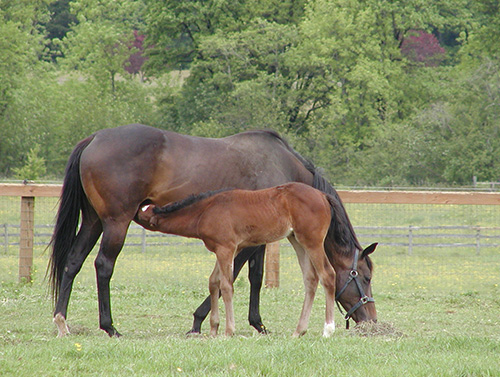Why horse owners need to be prepared
Disaster preparedness is important for all animals, but it takes extra consideration for horses because of their size and transportation needs. Disasters can happen anywhere and take many different forms, from barn fires to hazardous materials spills to propane line explosions and train derailments — all of which may necessitate evacuation.
During an emergency, time to evacuate your horses will be limited. But with an effective emergency plan, you could have enough time. If you are unprepared or wait until the last minute to evacuate, you could be told by emergency management officials to leave your horses behind. Once you leave your property, you have no way of knowing how long you will be out of the area. If left behind, your horses could be unattended for days and without food or water. To help avoid that possibility, we have prepared information and suggestions to help you plan for emergencies.
Barn fires: the leading disaster for horse owners
Preventing barn fires and being prepared in the event of one can mean the difference between life and death for your horses. Know the danger of fires and how to deal with them.
Fire prevention is key
- Prohibit smoking in and around the barn.
- Avoid parking tractors and vehicles in or near the barn. Engine heat and backfires can spark a flame.
- Store other machinery and flammable materials outside the barn.
- Inspect electrical systems regularly and immediately correct any problems. Rodents can chew on electrical wiring and cause damage that quickly becomes a fire hazard.
- Keep appliances to a minimum. Use stall fans, heaters and radios only when someone is in the barn.
- Be sure hay is dry before storing it. Hay that is too moist may spontaneously combust.
- Store hay outside the barn in a dry, covered area when possible.
Be prepared for a barn fire
- Keep aisles, stall doors and barn doors free of debris and equipment
- Mount fire extinguishers around the stable, especially at all entrances
- Have a planned evacuation route for every stall in the barn
- Familiarize employees and horse handlers with your evacuation plans
- Post emergency numbers at each telephone and entrance. Emergency numbers should include those of the barn manager, veterinarian, emergency response and other qualified horse handlers.
- Post your barn's street address by the hone to tell the 9-1-1 dispatcher or community emergency services.
- Be sure your address and the entrance to your property are clearly visible from the road.
- Consider installing smoke alarms and heat detectors. New heat sensors can detect rapidly changing temperatures. The heat sensors should be hooked up to sirens that will quickly alert you and your neighbors to a possible fire.
- Host an open house for emergency services personnel in your area to familiarize them with your property's layout. Give them tips on horse handling or present a mini-seminar with hands-on training.
- Familiarize your horses with emergency procedures and common activities they would encounter during a disaster. Try to desensitize them to flashlights and flashing lights.
Information courtesy of the Humane Society of the United States
